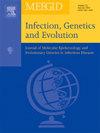生物后制剂和细胞外囊泡:呼吸道感染和炎症的作用机制和临床前景。
IF 2.6
4区 医学
Q3 INFECTIOUS DISEASES
引用次数: 0
摘要
后生物制剂是从益生菌微生物中提取的生物活性代谢物和结构成分,在不需要活菌的情况下发挥健康益处。这些物质包括短链脂肪酸、多肽、多糖和细菌细胞壁片段,它们都具有免疫调节、抗炎和抗菌特性。与益生菌相比,后益生菌更稳定、更安全,越来越被认为是潜在的治疗药物。由益生菌释放的细胞外囊泡(EVs)也同样成为宿主-微生物相互作用的重要介质。在肺炎、流感、2019冠状病毒病(COVID-19)、哮喘、囊性纤维化、结核病和变应性鼻炎等呼吸道疾病中,后生物制剂可增强上皮屏障,调节免疫反应,破坏致病性生物膜,并增强常规疗法的有效性。它们影响肠-肺轴的能力进一步将其益处扩展到呼吸系统之外,有助于系统免疫平衡和微生物群稳态。此外,后生物制剂显示出通过选择性靶向病原体同时保存共生微生物来减轻抗菌素耐药性的潜力。综上所述,后生物制剂的安全性、多功能性和治疗前景突出了它们作为标准治疗的辅助手段以及作为感染控制和呼吸健康管理的创新策略的潜力。本文章由计算机程序翻译,如有差异,请以英文原文为准。
Postbiotics and extracellular vesicles: Mechanisms of action and clinical promise in respiratory infections and inflammation
Postbiotics are bioactive metabolites and structural components derived from probiotic microorganisms that exert health benefits without the requirement for live bacteria. These include short-chain fatty acids, peptides, polysaccharides, and bacterial cell wall fragments, all of which demonstrate immunomodulatory, anti-inflammatory, and antimicrobial properties. Compared with probiotics, postbiotics are more stable, safer, and increasingly recognized as potential therapeutic agents. Extracellular vesicles (EVs) released by probiotics have likewise emerged as important mediators of host–microbe interactions. In respiratory diseases such as pneumonia, influenza, coronavirus disease 2019 (COVID-19), asthma, cystic fibrosis, tuberculosis, and allergic rhinitis, postbiotics strengthen epithelial barriers, regulate immune responses, disrupt pathogenic biofilms, and enhance the effectiveness of conventional therapies. Their capacity to influence the gut–lung axis further extends their benefits beyond the respiratory system, contributing to systemic immune balance and microbiota homeostasis. Moreover, postbiotics show potential in mitigating antimicrobial resistance by selectively targeting pathogens while preserving commensal microbes. Taken together, the safety, versatility, and therapeutic promise of postbiotics highlight their potential as adjuncts to standard treatments and as innovative strategies for infection control and respiratory health management.
求助全文
通过发布文献求助,成功后即可免费获取论文全文。
去求助
来源期刊

Infection Genetics and Evolution
医学-传染病学
CiteScore
8.40
自引率
0.00%
发文量
215
审稿时长
82 days
期刊介绍:
(aka Journal of Molecular Epidemiology and Evolutionary Genetics of Infectious Diseases -- MEEGID)
Infectious diseases constitute one of the main challenges to medical science in the coming century. The impressive development of molecular megatechnologies and of bioinformatics have greatly increased our knowledge of the evolution, transmission and pathogenicity of infectious diseases. Research has shown that host susceptibility to many infectious diseases has a genetic basis. Furthermore, much is now known on the molecular epidemiology, evolution and virulence of pathogenic agents, as well as their resistance to drugs, vaccines, and antibiotics. Equally, research on the genetics of disease vectors has greatly improved our understanding of their systematics, has increased our capacity to identify target populations for control or intervention, and has provided detailed information on the mechanisms of insecticide resistance.
However, the genetics and evolutionary biology of hosts, pathogens and vectors have tended to develop as three separate fields of research. This artificial compartmentalisation is of concern due to our growing appreciation of the strong co-evolutionary interactions among hosts, pathogens and vectors.
Infection, Genetics and Evolution and its companion congress [MEEGID](http://www.meegidconference.com/) (for Molecular Epidemiology and Evolutionary Genetics of Infectious Diseases) are the main forum acting for the cross-fertilization between evolutionary science and biomedical research on infectious diseases.
Infection, Genetics and Evolution is the only journal that welcomes articles dealing with the genetics and evolutionary biology of hosts, pathogens and vectors, and coevolution processes among them in relation to infection and disease manifestation. All infectious models enter the scope of the journal, including pathogens of humans, animals and plants, either parasites, fungi, bacteria, viruses or prions. The journal welcomes articles dealing with genetics, population genetics, genomics, postgenomics, gene expression, evolutionary biology, population dynamics, mathematical modeling and bioinformatics. We also provide many author benefits, such as free PDFs, a liberal copyright policy, special discounts on Elsevier publications and much more. Please click here for more information on our author services .
 求助内容:
求助内容: 应助结果提醒方式:
应助结果提醒方式:


